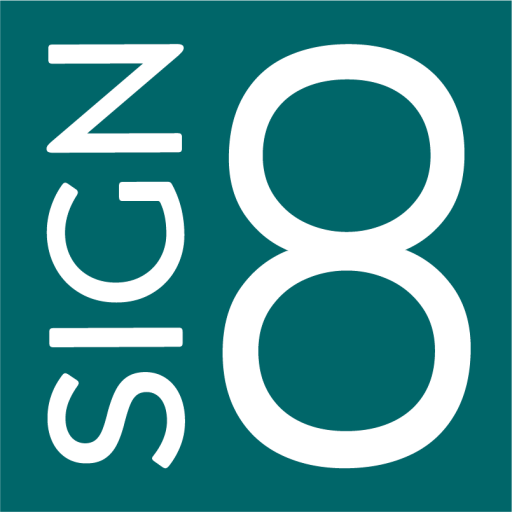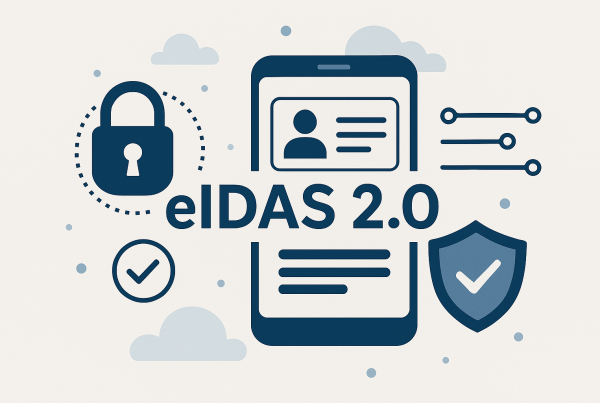
Stacks of paper, signature folders, and missed deadlines – sound familiar?
There’s a simpler way. Businesses looking to sign documents digitally need more than just a slick interface: they need signature certificates. What exactly are they, why are they legally important, and how can they future-proof your company? Here’s what you need to know.
What is a Signature Certificate?
A signature certificate is a digital document that cryptographically verifies the identity of a person or organization. It forms the basis for an electronic signature that is authentic, tamper-proof, and legally recognized. The certificate is issued by a trusted entity known as a Trust Service Provider (TSP), in accordance with the eIDAS Regulation.
A signature certificate ensures that:
Your documents can be signed digitally with legal validity,
The identity of the signer is traceable and verifiable,
Your workflows remain secure, efficient, and compliant.
Without a signature certificate, a digital signature lacks legal certainty—or may even be invalid. With one, it becomes a reliable alternative to a handwritten signature.

What Types of Signature Certificates Are There?
Depending on the required level of security and legal validity, there are two main types of signature certificates:
Advanced Certificate
An advanced electronic certificate forms the basis for an Advanced Electronic Signature (AES) — a signature type that offers more security and reliability than a simple electronic signature. The certificate serves as a digital proof of identity, ensuring that the signature can be clearly linked to a specific person.
To be classified as “advanced,” a signature must meet the following requirements: It must be created under the sole control of the signatory, any changes made to the signed document afterward must be detectable and it must be technically linked to the individual who signed it.
These conditions are met through the use of an advanced certificate issued by a trusted provider (a so-called Trust Service Provider).
Advanced certificates are commonly used when no qualified signature is legally required, but a high level of security and traceability is still necessary. Examples include: Approving offers, orders, or invoices; signing internal company documents; managing digital workflows with business partners.
For many organizations, the advanced electronic certificate is an ideal entry point into the world of digital signatures. It offers a balanced mix of legal assurance, technical security, and ease of use.
Qualified Certificate
A qualified electronic certificate is the foundation of a Qualified Electronic Signature (QES) — the highest standard for electronic signatures under the EU’s eIDAS Regulation. It is legally equivalent to a handwritten signature and is recognized throughout the EU.
What makes it special? Before a qualified certificate is issued, the signatory’s identity must be verified beyond doubt by a certified trust service provider. This can be done via: Online ID verification using an ID card, Video identification (VideoIdent), an in-person verification process.
Only after successful verification is the qualified certificate issued, and the signature key provided under strict security conditions.
When using a QES, the signing action must be explicitly confirmed — typically through a one-time password (OTP) or two-factor authentication (2FA).
This ensures the signature truly originates from the authorized individual and wasn’t applied unnoticed or automatically.
QES is required wherever written form is mandated by law, including employment contracts, terminations, consumer credit agreements, public procurement processes, legal and notarial procedures.
While a qualified certificate offers the highest level of legal certainty, it also involves greater technical and organizational effort. As a result, many companies use it selectively — only when necessary — and combine it with advanced signatures for less critical scenarios.

How Do You Obtain a Signature Certificate?
A signature certificate is issued by a certified trust service provider. The process typically involves the following steps:
Request for an advanced or qualified signature
- Request for an advanced or qualified signature
- Identity verification of the signatory (e.g., via VideoIdent, online ID, or in-person process)
- Creation of a key pair (private and public key)
- Issuance of the certificate with the verified information
- Management and use through a secure signature tool or corresponding platform
What Do Companies Use Signature Certificates For?
Digital signatures backed by certificates are used across a wide range of business areas:
- Contract signing with customers and partners
- Approval processes in procurement, HR, or executive management
- Electronic invoicing (e.g., XRechnung, ZUGFeRD)
- Official communications (e.g., with ELSTER, eProcurement platforms)
Conclusion
A signature certificate is more than just a technical add-on — it’s the foundation for legally binding and future-proof digital business processes. If you want to use digital signatures securely and in compliance with legal requirements, qualified certificates are a must.
Want to learn more about digital certificates? At SIGN8, we are a certified trust service provider, authorized to issue both advanced and qualified certificates.
Book your demo now at Contact – E-Signatures by SIGN8 or send us a message at customerservice@sign8.eu.



